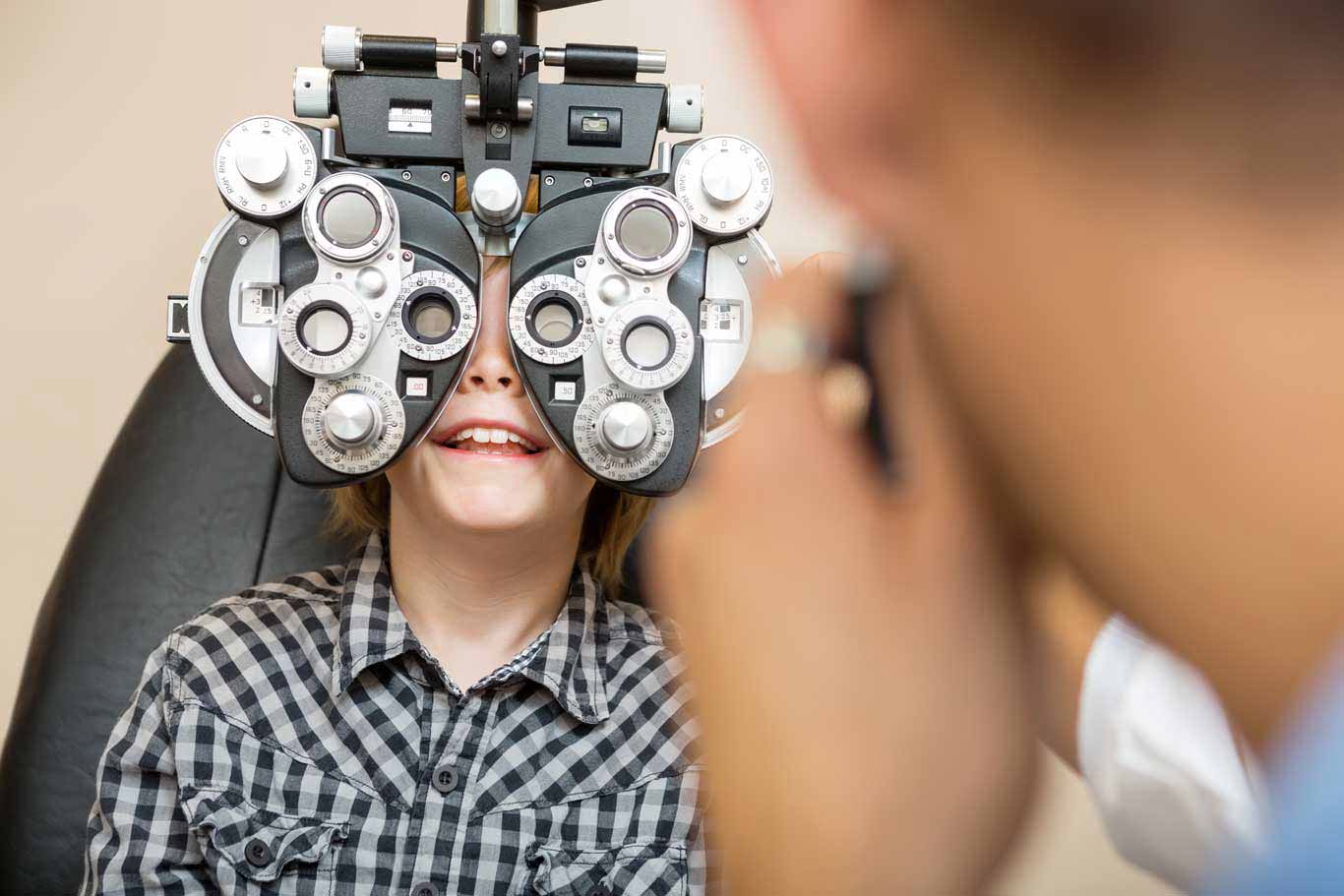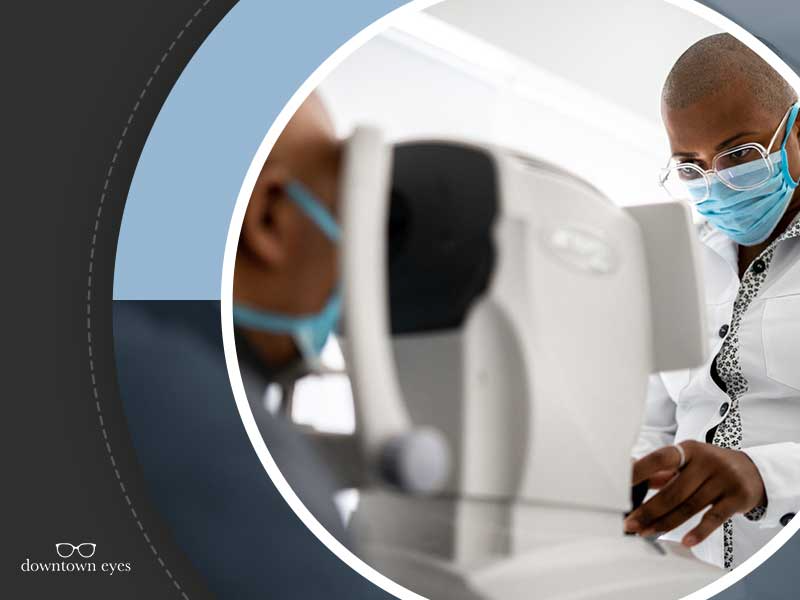Best Eye Doctors Panama City: Professional Care and Modern Facilities
Best Eye Doctors Panama City: Professional Care and Modern Facilities
Blog Article
A Comprehensive Guide to Eye Surgical Treatment Treatments Available at Your Ophthalmologist's Practice
In the realm of ophthalmology, the innovations in eye surgery treatments have actually opened up a globe of possibilities for those seeking enhanced vision and eye health. From the commonly well-known LASIK eye surgical procedure to the less familiar Corneal Transplants, the variety of treatments offered at your eye physician's practice can attend to a selection of vision-related concerns.
LASIK Eye Surgical Procedure
When considering vision correction procedures, LASIK eye surgical procedure becomes a prominent choice for people looking for long-lasting improvement in their sight. LASIK, which represents Laser-Assisted sitting Keratomileusis, is a popular refractive surgical treatment that aims to correct typical vision problems such as farsightedness, nearsightedness, and astigmatism. This treatment involves using a laser to improve the cornea, permitting light to be appropriately focused onto the retina, leading to more clear vision without the demand for glasses or call lenses.
One of the essential advantages of LASIK eye surgical treatment is its fast and fairly painless nature. The treatment itself generally takes just around 15 mins per eye, with most individuals experiencing boosted vision nearly immediately. In addition, the recuperation time for LASIK is fairly brief, with several people able to go back to their typical tasks within a day or more.

PRK (Photorefractive Keratectomy)
FIRST SENTENCE:
One more sophisticated vision adjustment treatment comparable to LASIK is PRK (Photorefractive Keratectomy), using reliable services for individuals looking for options to typical glasses or contact lenses. PRK is a surgical procedure that reshapes the cornea utilizing an excimer laser to fix refractive mistakes such as myopia (nearsightedness), hyperopia (farsightedness), and astigmatism. Unlike LASIK, PRK does not entail developing a flap on the cornea; rather, the outer layer of the cornea is delicately removed before the laser therapy. This makes PRK an appropriate option for people with slim corneas or those involved in activities where the risk of eye injury is higher.
The recuperation duration for PRK is much longer contrasted to LASIK, as the outer layer of the cornea requires time to regenerate. Clients might experience discomfort and blurred vision during the first healing stage, yet vision gradually boosts over several weeks. Your eye physician will certainly offer in-depth post-operative care directions to ensure a smooth recuperation process and optimal visual end results.
Cataract Surgery
Cataract surgery, a common procedure performed by eye doctors, involves removing the gloomy lens within the eye and replacing it with a clear synthetic lens implant to recover vision clarity. Cataracts occur when the all-natural lens of the eye becomes over cast, bring about blurred vision and trouble seeing clearly. Throughout cataract surgery, the eye doctor makes a tiny laceration in the eye and uses ultrasound modern technology to damage up the gloomy lens, which is after that delicately suctioned out. When the cataract is eliminated, the artificial lens, referred to as an intraocular lens (IOL), is inserted to replace the natural lens's feature. This IOL helps to focus light onto the retina, improving vision. Cataract surgery is normally performed on an outpatient basis and is understood for its high success price in boosting vision and lifestyle for individuals. It is important to speak with your optometrist to establish if cataract surgery is the right choice for you based upon your specific eye health needs.
Corneal Transplants
Corneal transplants, also referred to as corneal grafts, are surgeries that entail replacing damaged or diseased corneal tissue with healthy and balanced benefactor tissue to boost vision and minimize corneal conditions. This procedure is normally recommended for site people with corneal scarring, thinning, or other corneal conditions that can not be treated effectively with other methods such as medication or call lenses.
During a corneal transplant, the ophthalmologist eliminates the main part of the damaged cornea and changes it with a donor cornea. This donor cells is thoroughly picked, checked, and saved to ensure compatibility and decrease the threat of rejection. Corneal transplants can bring original site back vision, lower pain or pain, and enhance the appearance of the eye.
There are different sorts of corneal transplants, including full-thickness transplants (permeating keratoplasty) and partial-thickness transplants (such as endothelial keratoplasty or anterior lamellar keratoplasty), with the choice depending upon the details problem being dealt with. After the surgery, patients call for close post-operative treatment to monitor recovery and prevent problems.
Retinal Detachment Surgical Procedure
Following effective corneal transplants, another essential eye surgery treatment that may be needed for particular individuals is retinal detachment surgical procedure, a delicate procedure aimed at bring back the retina's proper setting to maintain vision and stop further difficulties (eye center of northwest florida). Retinal detachment takes place when the retina, the thin layer of tissue at the back of the eye accountable for catching light and sending visual signals to the brain, retreats from its regular placement. This separation can bring about vision loss if not quickly dealt with through surgical procedure
During retinal detachment surgical treatment, the ophthalmologist functions to reattach the retina to the rear of the eye. There are various surgical techniques available, including pneumatic retinopexy, scleral buckle, and vitrectomy, with the option depending upon the seriousness and certain qualities of the detachment. If feasible, the goal of the surgery is to avoid vision loss and boost or recover vision. After the procedure, patients may require to follow a post-operative treatment plan to optimize recovery and aesthetic end results. Early detection and treatment of retinal detachment are click to find out more essential in protecting vision and preventing long-term vision impairment.
Final Thought

In the realm of ophthalmology, the improvements in eye surgical procedure treatments have actually opened up a globe of possibilities for those seeking improved vision and eye wellness. From the commonly recognized LASIK eye surgical procedure to the less acquainted Corneal Transplants, the range of treatments readily available at your eye medical professional's practice can deal with a range of vision-related issues. It is crucial to consult with your eye medical professional to figure out if cataract surgery is the right alternative for you based on your specific eye wellness demands.
Following effective corneal transplants, one more critical eye surgery procedure that may be essential for certain people is retinal detachment surgical procedure, a fragile operation intended at recovering the retina's appropriate placement to maintain vision and stop more complications.In verdict, there are various eye surgical procedure therapies offered at your eye physician's practice, including LASIK, PRK, cataract surgery, corneal transplants, and retinal detachment surgery.
Report this page